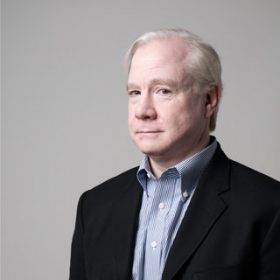What was your dissertation title and topic?
“Could Cats Turn Out to be Robots?” Putnam, Burge and Twin Earth arguments
What seminar stood out and influenced your thinking?
David Kaplan on Russell and Frege; Rogers Albritton on anything; Tyler Burge on Mental Representation
What, if anything, about the UCLA department’s culture and approach to philosophy has influenced your intellectual approach?
The rigor, patience, seriousness, humility, and joy that the faculty showed toward philosophical questions.
If your current career is outside of academia, have you found your philosophical training useful and if so, in what way?
After UCLA, I taught at University College London and UC Riverside. Then I left philosophy and re-invented myself as a public policy analyst. I work for research and consulting firms that provide advice to governments on policy issues. One striking fact about my transition was that in my work on economics and policy I immediately met more or less exactly the issues that interested me in philosophy. For example, I know that at UCLA, I worked on technical issues in logic, philosophy of language, and the theory of action, that re-appear in Kahneman and Tversky and in behavioral economics. Moreover, every serious policy idea is motivated by a concept of the good and constrained by a concept of the right. So, it’s a bit as though I never left.
Any all-time favorite philosophical articles or books you would recommend? Any new discoveries?
Favorites:
- Kripke, “Naming and Necessity”
- Rawls, “A Theory of Justice”
- Hilary Putnam’s collected papers, especially “The Meaning of Meaning”
- David Kaplan, “Quantifying In”, “Demonstratives” and his lectures on Frege and Russell
- Keith Donellan “Reference and Definite Descriptions”
- Tyler Burge “Individualism and the Mental”
- Kant “Groundwork for the Metaphysics of Morals”
- Paul Benacerraf “What Numbers Could not Be”
- WVO Quine “Carnap and Logical Truth”
- Chomsky “Language and Mind”
- David Lyons “Forms and Limits of Utilitarianism”
- Thomas Scanlon “The Possibility of Altruism”
- Jane Austen “Pride and Prejudice”
New:
- Anything by David M. Kreps
- Anything by Amartya Sen
- Kahnemann and Tversky, “Choices, Values, Frames”
- Atul Gawande, “The Checklist Manifesto”
- Albert O. Hirschman “Exit, Voice, and Loyalty”ated by a concept of the good and constrained by a concept of the right. So, it’s a bit as thought I never left.


